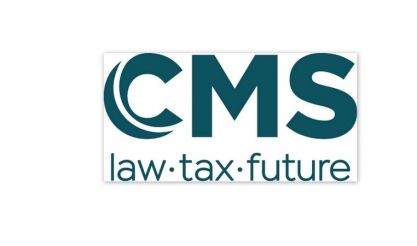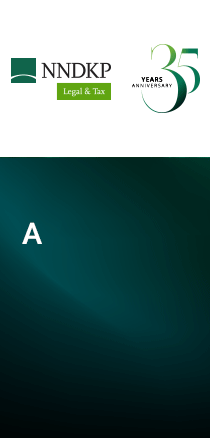
CMS România | Romanian court rules pre-existing conditions of patients do not excuse provider liability for nosocomial infections
15 Februarie 2023 CMS România
For more information on this decision and healthcare liability in Romania, contact your CMS client partner or local CMS experts: Horia Draghici and Andrei Cristescu.

|
The High Court of Cassation and Justice of Romania ruled that healthcare establishments may not avoid liability for nosocomial infections that a patient acquires during hospitalisation, irrespective of the individual's pre-existing health condition. The only chance for a healthcare provider to avoid liability is to provide evidence that the patient already carried the pathogen before admission to the establishment.
The case
An individual identified as "Mr. B" was hospitalised in Timisoara for heart disease. During hospitalisation, he died from a nosocomial infection. His wife sued the hospital and claimed damages, arguing that the hospital is liable for the infection. The first court and the appeal court dismissed the claim, but the High Court of Cassation and Justice (i.e. Romania’s Supreme court) decided that the hospital is liable for the death of the patient caused by a nosocomial infection.
The case
An individual identified as "Mr. B" was hospitalised in Timisoara for heart disease. During hospitalisation, he died from a nosocomial infection. His wife sued the hospital and claimed damages, arguing that the hospital is liable for the infection. The first court and the appeal court dismissed the claim, but the High Court of Cassation and Justice (i.e. Romania’s Supreme court) decided that the hospital is liable for the death of the patient caused by a nosocomial infection.
Law no. 95/2006 regarding the reform of the healthcare system, Article 655 (1) a)
The decision was based on Art. 655 para. (1) letter a) of Romania's Law no. 95/2006 that provides: “Public or private healthcare establishments, as providers of healthcare services, shall be civilly liable, according to general law provisions, for damages caused during the activity of prevention, diagnosis or treatment, if they are the consequence: (a) nosocomial infections, unless an external cause beyond the control of the healthcare establishment is proved. (…)”
Hence, in order to trigger liability on the basis of the above legal provision, the claimant must only prove that the injury was caused by a nosocomial infection during the activity of prevention, diagnosis or treatment, while the only way in which the defendant can be exonerated from liability is to prove an external cause beyond the establishment's control.
Proof of negligence is not required.
The law does not establish the meaning of the "external cause beyond the control of the healthcare establishment", so it is subject to interpretation of Romanian courts.
Application in this case
The first court and the appeal court considered that by weakening the immune system the pre-existing health condition favoured the nosocomial infection and that this represented an external cause that could not be controlled by the hospital, as provided in Article 655 (1) a). This decision was rendered even though the evidence indicated that the death of Mr. B was caused by the nosocomial infection acquired in the hospital.
In the second appeal, the High Court of Cassation and Justice invalidated the decisions of the lower courts and sent the case for retrial. The High Court of Cassation and Justice concluded that the state of immunological vulnerability, caused by previous diseases, is irrelevant and does not constitute an external cause in the meaning of Article 655 (1) a) of Law no. 95/2006.
The reasoning was that this legal provision establishes an objective tort liability of healthcare establishments for damages caused to patients by nosocomial infections as a consequence of the providers' failure to comply with their legal safety obligations. The risk of nosocomial infections belongs to the healthcare establishment and cannot be transferred to the patient.
To avoid the introduction of pathogens within the healthcare establishment, patients are examined at the time of admission to the health establishment. After that moment, the medical conditions of patients come under the power and control of the healthcare establishment, which has an obligation to guarantee the prevention of nosocomial infections. When the damages are caused by a nosocomial infection (i.e. the determinant cause), the liability of the healthcare establishment is triggered. In this case, the contributing causes such as a weak immune system is of no relevance.
The High Court of Cassation and Justice also established that the only situation where the previous diseases can be relevant is when, at admission to the healthcare establishment, the patient is the carrier of the pathogen, which the healthcare establishment could not discover in the framework of its medical investigations. As this exception was not applicable, the High Court decided to admit the final appeal.
Comment
The case underlines that Article 655 (1) a) of Law no. 95/2006 provides an objective tort liability, as it is not necessary to prove negligence. Furthermore, it provides a benchmark for determining whether a particular circumstance constitutes an "external cause beyond the control of the healthcare establishment". Hence, it shows that if the healthcare establishment is to avoid liability, it needs to provide evidence that the source of the patient's nosocomial infection occurred outside of the healthcare establishment. In this case, the infection must be discovered before the patient's admission into the healthcare establishment.
In particular, the decision shows that the pre-existing health condition does not exonerate the establishment from liability. (As a rule, all patients admitted to healthcare establishments have pre-existing health conditions). Therefore, the standard of proof for healthcare establishments to avoid liability for nosocomial infections is high and healthcare establishments should put in place procedures for early screening of newly admitted patients to discover pathogen agents.
Additionally, the reasoning of the High Court of Cassation and Justice confirmed the high level of legal protection of patients that acquire nosocomial infection during admission to healthcare establishments.
For more information on this decision and healthcare liability in Romania, contact your CMS client partner or local CMS experts: Horia Draghici and Andrei Cristescu.
This article has been co-authored by Diana Ceausu, Lawyer.
| Publicitate pe BizLawyer? |
  |
| Articol 768 / 4608 | Următorul articol |
| Publicitate pe BizLawyer? |
 |

BREAKING NEWS
ESENTIAL
Mușat & Asociații obține o nouă victorie definitivă pentru NUROL într-un proiect strategic de infrastructură rutieră
Apreciată constant de ghidurile juridice internaționale pentru mandatele sofisticate, practica de Capital Markets a CMS România a devenit, prin consistență și profunzime, unul dintre pilonii reputației firmei pe piața locală și un reper important în rețeaua sa regională | De vorbă cu Cristina Reichmann (Partener) despre disciplina pregătirii pentru bursă, finețea aplicării regulilor de piață și forța unei echipe care lucrează articulat, cu roluri clare și obiective aliniate
Record de promovări la Țuca Zbârcea & Asociații: trei noi parteneri și alte 16 numiri interne | Florentin Țuca, Managing Partner: ”Această serie de promovări, una dintre cele mai extinse din istoria noastră, coincide cu aniversarea a 20 de ani de la fondarea firmei, un moment ce reconfirmă valoarea, profesionalismul și dăruirea întregii noastre echipe”
Filip & Company a organizat în parteneriat cu Asociația Studenților în Drept cea de-a zecea ediție a Concursului de negocieri simulate „Teodora Tudose”
MAXIM ̸ Asociații asistă EMSIL TECHTRANS în tranzacția imobiliară încheiată cu METSO pentru o proprietate industrială din Oradea
Kinstellar a consiliat GEA Group, firmă cu operațiuni în peste 150 de țări, cu privire la crearea unui joint venture cu RebelDot, companie de tehnologie din Cluj-Napoca. Echipa care a gestionat proiectul a fost condusă de Rusandra Sandu (Partner) și Mihai Stan (Managing Associate)
Mitel & Asociații dezvoltă o practică de litigii construită în jurul unui nucleu de avocați cu mare experiență, capabilă să ducă la capăt mandate complexe cu impact financiar și reputațional major, într-o piață în care disputele devin tot mai tehnice și mai dure | De vorbă cu Magda Dima (Partener) despre cum se construiește strategia, se evaluează riscurile și se formează generația nouă de litigatori
Echipa de Concurență a RTPR îmbină experiența cu precizia operațională, într-o formulă remarcată în Legal 500 și Chambers | De vorbă cu partenerii Valentin Berea și Roxana Ionescu despre modul de lucru care privilegiază consistența și rigoarea, cu rezultate ce confirmă profesionalismul și anvergura practicii
NNDKP, Popescu & Asociații și ZRVP au cei mai mulți profesioniști listați în Benchmark Litigation - 2025. Ce avocați au intrat în liga „Litigation Stars” și prin ce s-au remarcat firmele aflate în plutonul de forță al practicii
Mușat & Asociații confirmă, în Real Estate, forța unei echipe obișnuite să lucreze sub presiunea timpului și a reglementărilor, menținând proiectele pe un traseu sigur de la due diligence la implementare | De vorbă cu Monia Dobrescu (Partener) despre combinația de rigoare juridică, luciditate în evaluarea riscurilor și creativitate în soluții, într-o periodă plină de provocări
NNDKP confirmă, prin practica de Litigii, că este prima opțiune pentru companiile care au nevoie de reprezentare în dosare cu miză de sute de milioane de euro, în instanțe și arbitraje la curți internaționale | De vorbă cu Emil Bivolaru (Partener Executiv) și Sorina Olaru (Partner) despre combinația dintre strategie, tehnologie și echipe capabile să ducă la capăt dosare complexe cu soluții favorabile, construite pe argumente solide, într-o piață a disputelor sofisticată
Patru firme de avocați din România, evidențiate pentru activitatea în domeniul Competition ̸ Antitrust | NNDKP, CMS, TZA și D&B David și Baias au intrat în topul global al firmelor cu cea mai bună practică de concurență. Cine sunt avocații evidențiați de GCR 100 – 2026 și care au fost proiectele care au adus recunoaștere echipelor locale
Citeste pe SeeNews Digital Network
-
BizBanker
-
BizLeader
- in curand...
-
SeeNews
in curand...











 RSS
RSS














































